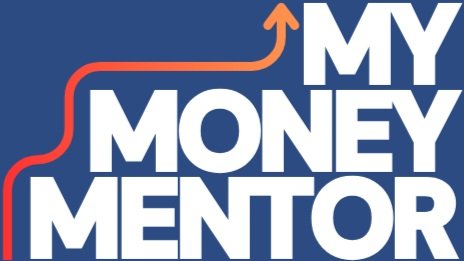Debt: good or bad?
Many financial gurus, plus other important people will typically tell you that debt is bad and you should pay down your debt as quickly as possible.
But remember from the interest rate section- that money has a different cost depending on what you do with it? Well debt can be good or bad depending on what it’s for.
Debt in its simplest form is just you borrowing someone else’s money. At some point, you’ll need to pay it back. And until you do, you’ll likely have to pay interest to whoever lent it to you.
What many people don’t tell you though, is some debt is superb and you should try and get as much as possible. Some debt is terrible, and you should avoid at all costs.
There are four things to consider to know if you’re looking at good debt or bad debt:
Who has lent you the money
How much are they charging you in interest
When do you have to pay it back
and most importantly- what are you doing with the money?
Lets take each in turn:
1. Who has lent you the money
Friends and family: easy access, no credit score, no credit reporting, often low rates. But, this sort of thing can be very damaging for personal relationships. It may be best to have a formal agreement in place (examples available on the Templates page) to protect everyone. However, even with a formal agreement you may find terms changed on you without your consent.
Banks: it’s typically very hard to get lending from banks, particularly in the UK. But it comes with the significant benefits of being regulated, contractual, and you know ahead of time what the terms are and what your exposure is. Be sure you check the fine print, particularly around fees and possible additional charges such as early repayments.
Credit cards: the most flexible and often most easily accessible form of debt. But as debt, it’s incredibly expensive (the rates are insanely high). If you have outstanding credit card debt, you should likely pay this down first before doing anything else with your money.
Brief note: Credit cards can be hugely powerful if used correctly. They offer significant perks- miles, cash back, as well as much better protection than debit cards. If you are able to pay your credit card off entirely each month, then you’ll be far better off paying for everything you possibly can on a credit card vs a debit card. BUT the caveat is that the credit card balance must be paid off every month (you should set this on auto because nobody has the time to remember things like this) so you do not pay any interest. It is only where using credit cards as a source of debt that things being to go wrong.
2. How much are they charging you in interest
This is fairly intuitive- if the interest rate is high, you’re going to want to pay the debt back as soon as you can because it’s expensive. If the interest rate is low (like a mortgage) you will instead likely want to get as much of this debt as possible as you’ll probably be able to invest that money elsewhere and earn a higher return.
This is an opportunity cost question- can you earn a higher rate using the money for a productive purpose than you’re being charged in interest? If yes, then don’t pay down the debt, and possibly get more. If no, you’ll be better off paying the debt off sooner rather than later.
3. When do you have to pay it back
Some certainty here is helpful, ideally you’ve got a clear idea of when the money is due to be paid back. Longer is better, because it gives you more flexibility. Make sure you’re away of any pre-payment conditions or penalties- some lenders are cheeky and will actually charge you a fee if you want to pay back early (because it cuts their interest payments).
4. What you’re doing with the money
This is one of the most important elements. If you’re borrowing money to invest in a business, a piece of land, a property or some other asset that is going to generate a return for you, that’s likely a very good use of debt. You’re using other people’s money to buy yourself more assets, and then relying on the asset itself to pay the debt back to whoever you borrowed it from. That is very much to be encouraged.
If you’re borrowing to spend money or to support your lifestyle, that is very much to be avoided. Debt should only be used in order to acquire assets. If you’re buying anything else at all, think very carefully.
The most common form of significant debt that most people have in the US is their mortgage. Is that good or bad debt? Again- it very much depends. Some mortgages can be a great investment and a real asset, others can make people far worse off financially. To find out for your situation, we’ve built a section for just these questions: Houses & Mortgages.
